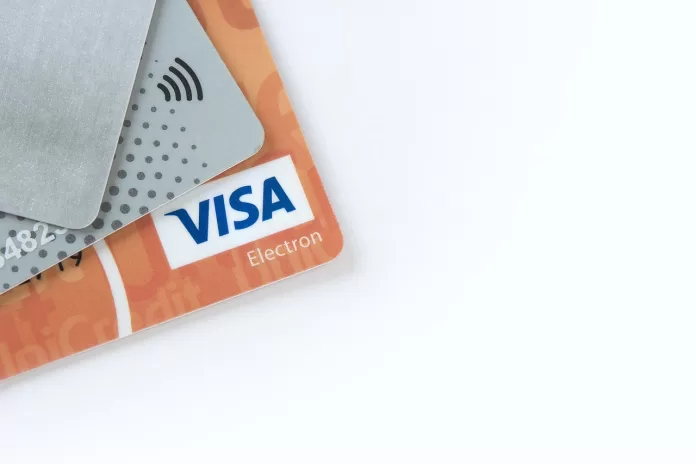Visa recently announced its plans to advance digital currency as a payment option, an initiative that would of course, be global in scope owing to their status as a “global payments technology company”. This goes to show us the general direction of where things are headed. This is also a contrast to much of what we’ve seen this year thus far being fueled by the coronavirus pandemic. We’ve been seeing calls to go cashless left and right and now America is allegedly even experiencing a coin shortage further propelling talks of a cashless society to the forefront.
Visa as a company is taking the initiative to become a part of what they likely deem to be a lucrative area. That again should show us the general trend of things especially as various nations such as the US and China prepare themselves for their own digital dollar and digital yuan respectively. Digital currency is by no means anything new, but the need to stress any developments made in this arena is due to its increasing popularity.
Several months ago, I also reported on Mastercard’s partnership with microsoft in creating a “universally-recognized digital identity”. Could Visa also go down this route in order to stay competitive or get onboard a growing industry? Possibly. As time goes on it seems that the picture of how things may come together to bring about a cashless society becomes increasingly clear to us.
Advancing our approach to digital currency
From Visa: As a global payments technology company, Visa is focused on delivering the greatest value to people, businesses and economies everywhere, regardless of currency, channel or form factor. We’re reshaping how money moves across the globe, and that means pursuing a broad array of technologies and partnerships.
In that regard, digital currencies offer an exciting avenue for us to continue doing what we do best: expanding our network-of-networks to support new forms of commerce. The concept of digital currency — or a digital version of cash controlled by a private key — was created more than a decade ago, with the launch of Bitcoin.
Today, fiat-backed digital currencies, commonly referred to as “stablecoins,” have emerged as a promising new payment innovation, combining the benefits of digital currencies with the stability of existing currencies like the US dollar. It’s a concept that is gaining traction beyond fintechs, and now includes financial institutions and central banks. Consumers and businesses are also adopting digital currencies and circulation is growing rapidly, reaching over $10B in May.
Visa has been working closely with licensed and regulated digital currency platforms like Coinbase and Fold to provide a bridge between digital currencies and our existing global network of 61 million merchants. Around the world, more than 25 digital currency wallets have linked their services to Visa, giving users an easy way to spend from their digital currency balance using a Visa debit or prepaid credential — anywhere Visa is accepted.
Similar to other digital wallets, digital currency wallets are looking to use the full range of Visa’s capabilities, including Visa Direct, which makes it faster and easier for consumers to convert digital currency and push those funds to their Visa credentials in real-time. Much of this work is happening through Visa’s FastTrack program, which helps fintechs, including those in the digital currency space, integrate quickly with Visa’s global network.
Through these efforts, Visa has become the preferred network for digital currency wallets, which are eager to deepen their value to users by making it quicker and easier to spend digital currency worldwide. We’ve been advancing and evolving our digital currency strategy for quite some time. Last year we made an investment in Anchorage, a company building security infrastructure for the digital currency ecosystem.
Our research team has been exploring the science of blockchain technology for several years. Their work has yielded several promising innovations, including Zether2 and FlyClient.3 Today their research is focused on new mechanisms to improve scalability and enable offline digital currency transactions. Read More
VISA announces global plans for crypto payments – will go global with major tokens
From Coin Journal: In a recent press release, Visa announced its move into the digital currency space by integrating crypto transactions with its global network of 61 million merchants. The platform will support 25 different cryptos, including Bitcoin, Ethereum and Ripple.
Visa seems to be realising that the use of crypto is becoming more prominent outside of the fintech field, with consumers and businesses adopting the technology in larger numbers. From May 2019 to May 2020, more than $10 billion in crypto was used for online payments.
Visa invested in crypto research company Anchorage last year, and it led to platforms such as Zether and FlyClient, all of which contributed to the current program. The new Visa cryptocurrency wallet will be similar to a digital wallet.
The wallet is designed to deliver a, “full range of Visa’s capabilities,” that will make it, “faster and easier for consumers to convert digital currency and push those funds to their Visa credentials in real-time.” Read More

Sources
- VISA announces global plans for crypto payments – will go global with major tokens (July 27th, 2020) – Coin Journal
- Advancing our approach to digital currency (July 22nd, 2020) – Visa




 Support the Ministry
Support the Ministry